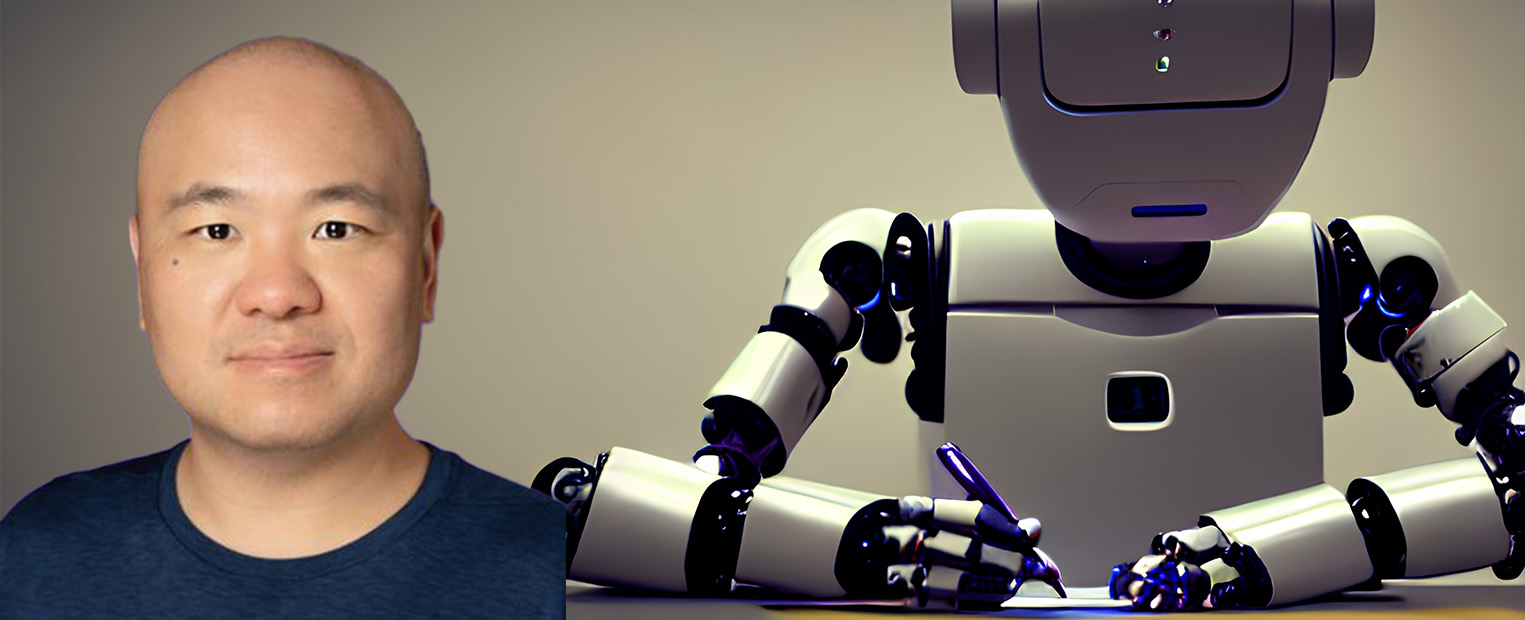ChatGPT is artificial intelligence that writes for you, which can include letters, song lyrics, research papers, recipes, poems, essays, outlines, even software code. Despite its clunky name (Generative Pre-trained Transformer), within five days of its launch, more than a million people were using it. Dr. Liran Ma, TCU computer science professor, explains the potential opportunities and challenges with this new-age language generation model.
What is ChatGPT?
ChatGPT is a language generation model developed by OpenAI (a company founded in 2015 by famous entrepreneurs including Elon Musk and Sam Altman). The model is trained on a large corpus of text data using advanced deep learning techniques such as the transformer architecture. It can generate text in response to prompts and be used for various applications such as conversation, question answering, text summarization, etc. The generated text is coherent, contextually relevant, and sometimes even creative.
Have we seen anything like this before?
ChatGPT is not a new model/thing. It was first introduced by OpenAI in 2019 and has since been updated several times with improvements to its architecture. There are other language generation models, such as BERT (developed by Google) and XLNet (developed by Carnegie Mellon University and Google Brain). These models are similar to ChatGPT in that they are all language-based AI models, but they differ in their specific architecture and training data, as well as their intended applications. ChatGPT has become increasingly popular and widely used due to its high-quality language generation capabilities and its ability to perform various language tasks.
Who is using it?
ChatGPT amassed more than a million users in just five days after its official launch on Nov. 30, 2022. It reached 100 million active users in two months, the fastest growing consumer app in history. Its user population is very diverse, ranging from students and researchers to blog writers and business analysts, or anyone who needs to deal with text data.
What are the implications?
There are many opportunities and challenges brought by ChatGPT to the society. Examples are listed below.
Opportunities:
- Improved user experience and efficiency in searching through natural-language-based interactions.
- Increased efficiency and productivity in various industries like finance, healthcare, reporting, and retail.
- Development of new and innovative applications leveraging the language capabilities of ChatGPT and models alike.
- Better accessibility and affordability of information and knowledge to a wider audience.
Challenges:
- Ethical concerns related to integrity, privacy, and bias of the language models. For example, the issue with students using ChatGPT to answer homework/exam questions or write essays is the one of the most pressing problems faced by schools for the time being. ChatGPT can easily answer most conception-based questions accurately, and it is hard to find out whether students have used it to generate their answers.
- Potential job displacement in certain fields. ChatGPT's ability to generate human-like written text could see the beginning of the end of jobs in journalism, such as reporters or writers.
- Need for ongoing monitoring and improvement to ensure accuracy and prevent the spread of misinformation. Specifically, ChatGPT can give outdated or wrong answers as its knowledge base is limited and mostly linked to 2021 and early 2022.
- Challenges in making the language models inclusive and accessible to people with diverse backgrounds and language needs.
How does this speak to the bigger question of staying ahead of and/or incorporating technology?
Due to its spectacular capabilities of generating text and providing information, ChatGPT can (and likely will) become an indispensable tool for everyone in the future just like Google today. Therefore, we need to learn how to incorporate/use ChatGPT in the proper way. As far as I’m concerned, ChatGPT is a giant, and we have to be knowledgeable ourselves in the first place to stand on the shoulders of the giant. However, if not used properly or in ethical ways, it can also have significant negative consequences. It is possible that our future generations become ChatGPT-dependent and no longer have the ability to think independently and critically.
